Civil Liberties, Criminalizing Dissent, Habeas Corpus, Human Rights, Military Tribunal, Political Prisoner, Prison Industry, Supreme Court, Targeting Muslims, Torture, Truth to Power
Podcast: Play in new window | Download
Updates:
—
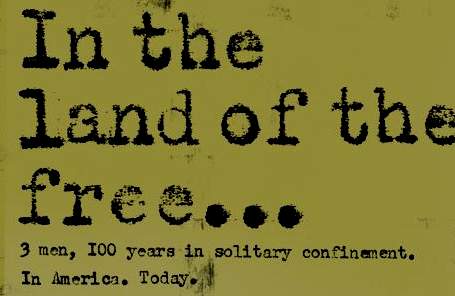
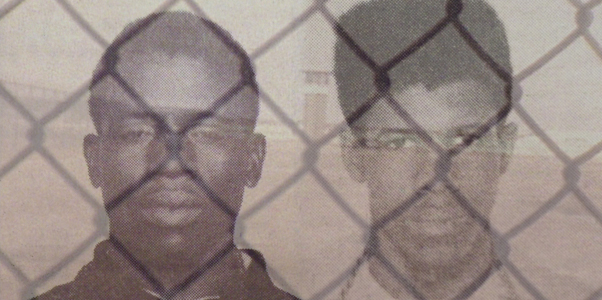
In the Land of the Free, a film by Vadim Jean
Director Vadim George joins us to discuss his recent documentary film “In the Land of the Free.” As many listeners may know, the Angola 3 are Robert King, Albert Woodfox and Herman Wallace. Each had arrived to the Louisiana State Penitentiary in the late 1960s. While in prison, and in contact with Black Panthers, the men helped build a prison chapter of the Black Panthers. They organized inmates to end systematic rape and violence and worked as jailhouse lawyers. The men have spent a combined century in solitary confinement in the Angola prison. Vadim’s powerful documentary explores the issues of accountability and examines the biases against the sentencing of African Americans compared to Whites and Latinos. The film is narrated by Samuel L. Jackson, and it’s noted toward the end, that there is a pending civil suit ‘Wilkerson, Wallace and Woodfox’ vs the State of Louisiana, ruled by the US Supreme Court and to go to trial based that their 30+ years in solitary confinement is “inhumane and unconstitutional”. This case could stop long-term solitary confinement in US prisons.
Vadim Jean:
- I was friends with Anita Roddick, she knew Robert King, and when she passed away in 2007, Robert King was one of the speakers at her memorial. They wouldn’t let me film in the prison.
- The Angola 3 came together in the New Orleans parrish prison in the 1970s.
- The criminals were put in with the Black Panthers and the Black Panthers educated the criminals.
- In the 1970s Angola was the bloodiest prison in America.
- Robert King was told why he was kept in solitary confinement after 25 years in CCR (solitary confinement)
- Because he was being investigated for the murder of Brent Miller, which happened when he wasn’t even in the prison. They’re incredible human beings. They’re strong men. They’re self educated, in prison.
- I think they have their side, the fact that they know they’re innocent, and that makes you strong, that’s made them incredibly strong. They refused to be beaten.
- Robert is free. His conviction was overturned in 2001. People have reacted strongly to the film.
- I’ve tended to make drama comedies. I made a completely mad film called Jiminy Glick in Lalawood with Martin Short.
- I made this film for Anita. (Anita Roddick) The Roddick Foundation.
Guest – Vadim Jean, began his career directing commercials for products such as Blockbuster Video, Woolworths, The Observer and Mercury 121 Mobile Phones. He then moved on to music videos for Elton John and Oasis before co-directing his first feature film, Leon the Pig Farmer (1992). For his work he won an Evening Standard British Film Award for Most Promising Newcomer, a Chaplin Award for Best First Feature at the Edinburgh International Film Festival.
——–


Law and Disorder Barack Obama Series – CCR Staff Attorney Shane Kadidal
We’re joined by Center for Constitutional Rights staff attorney Shane Kadidal to give us an overview on several critical topics we’ve been following over the years here on Law and Disorder. We look at what is happening in Guantanamo right now, the Obama policy of preventive detentions and the state of Habeas Corpus in the United States. In January of 2009 Barack Obama issued orders to close Guantanamo Bay prison. There was talk of transferring prisoners to a supermax prison in the United States. Military tribunals move forward for Guantanamo prisoners.
Shane Kadidal:
- What we won is the right to get into court and challenge the legality of your detention. CCR won that in 2008
- Obama gets into office and says he’s going to close Guantanamo Bay Prison in a year.
- Obama to set up expert agency to decide what to do with people in Guantanamo prison
- About 50 cases have gone forward and we (CCR) won 72 percent of the cases
- About 180 left in Guantanamo. Obama has improved physical conditions for detainees in Guantanamo, but they’re still stuck there. Nothing much has changed, we see stasis, there isn’t much political movement.
- About a month into the administration, the Obama Department of Justice says our position is the same as the Bush administrations on Bagram AFB prison
- We’re taking the same legal position about executive power as the previous administration – state’s secrets about rendition
- Six hundred people in Bagram right now. Bagram is an active war zone, can’t have courts interferring
- About 30 of the remaining 180 in Guantanamo will be charged. Most of the people brought there were innocent. The victim of profiling policies.
- General Stone says 400 of the 600 hundred in Bagram Prison have done nothing and should be released immediately. Task Force report on Guantanamo prisoners. 10 percent leaders of Al-Qaeda, 20 percent had a logistics role, others are low level soldiers. This is false.
- There are innocent people in Guantanamo, who have been there for 8 years.
- We still have a military commissions, an indefinite detention system. Lieberman proposing to strip citizenship from terrorism suspects so they can be interrogated without Miranda warnings.
- Moving Guantanamo Prison to Thomson Prison in Illinois.
- Obama as committed to removing checks on executive power
Guest – Shane Kadidal senior managing attorney of the Guantánamo Global Justice Initiative at the Center for Constitutional Rights in New York City. He is a graduate of the Yale Law School and a former law clerk to Judge Kermit Lipez of the United States Court of Appeals for the First Circuit.
Past shows with Shane Kadidal
Civil Liberties, Criminalizing Dissent, Guantanamo, Habeas Corpus, Human Rights, Surveillance, Truth to Power
Podcast: Play in new window | Download
Updates:
—
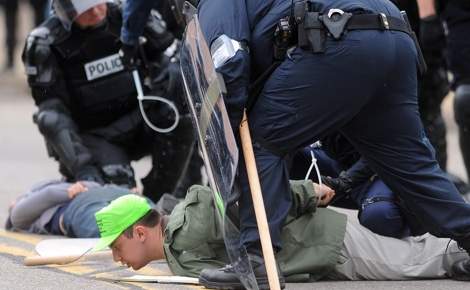
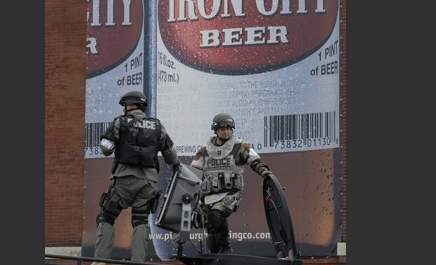
Pittsburgh’s Citizen Police Review Board Demands G20 Police Records, Faces Dismantling
Pittsburgh’s city council is worried that if the city’s Citizen Police Review Board are allowed to scrutinize secret records of officer conduct during the G-20 economic summit, more protesters will sue and possibly jeopardize a $20 million liability insurance policy the city bought before the International Summit last year. We could lose our homes over this,” said City Councilwoman Theresa Smith, chairwoman of the public safety committee.. “If we don’t have insurance, then it falls to us.” The Seeds of Peace Collective and Three Rivers Climate Convergence have filed a joint federal lawsuit against the city charging that police violated their First and 14th Amendment rights at two events. Meanwhile, city hall has started the nomination process to remove most of the members of the Pittsburgh Citizen Police Review Board.
Elizabeth Pittinger:
- The Pittsburgh Citizen Police Review Board does have subpoena power and when they initiated their inquiry last October, a general request of a number of documents to be turned over so we could begin the inquiry. The city resisted providing that information.
- In December the chair of the Citizen Police Review Board issued a subpoena demanding that police reports specified by number be turned over in addition to operational material and documents.
- On March 18, the courts issued an order directing the city to provide the documents. They finally gave us a stack of more than 300 pages of police reports that were so heavily redacted they were substantively illegible.
- We went back to court seeking that they would have to provide the information in an un-redacted form and that has led to this controversy with city council.
- The Pittsburgh City Council is coming forward with a document called “the will of council” urging the police review board to slow down its inquiry.
- What has happened now is that the request of these G20 documents is really the vehicle that the city has now created to challenge the board’s right of access to any document.
- Protesters hit with OC Vapor – Invisible Vaporized Pepper Spray
Guest – Elizabeth Pittinger, the Executive Director of the Pittsburgh Citizen Police Review Board.
——–
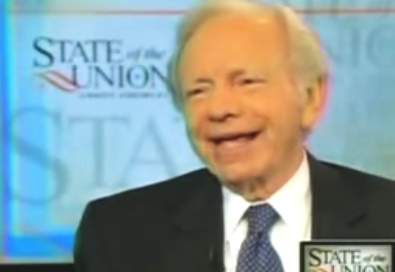
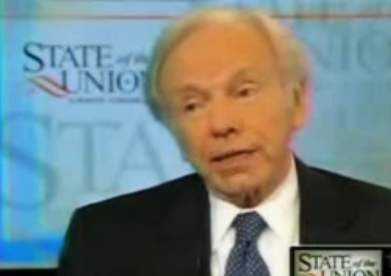
“Cyber War” Creates Need For Internet “Kill Switch”
Senator Lieberman and Senator Susan Collins have the attention of civil liberties and privacy experts as they craft a bill that would allow the take over of the civilian internet network during an emergency. After initial outcry, Senator Lieberman told the media, the Internet Kill Switch bill is a matter of national security, and a kill switch is needed to disconnect immediately from a foreign nation in case of an attack. He continues, “Right now, China, the government, can disconnect parts of its Internet in a case of war. We need to have that here too,” Protecting Cyberspace as a National Asset Act of 2010 is the name of the bill, and supporters argue that it is not a kill switch, but a way to divert traffic away from another country. It is added that the President already has broad powers to shut off any and all regulated telecommunications in the 1934 Telecommunications Act.
Tracy Rosenberg:
- I think its clear by the way the bill is currently written, the president could target political groups, but that’s not the intent of the bill. It doesn’t mean it couldn’t be used in that fashion. The information sharing is quite similar to what happened after 9/11. It potentially creates a situation where corporate providers basically rat out parties at the instructions of the government. That could certainly be directed at political viewpoints.
- Internet sites could potentially be shut down. Information about who is posting to them, who is reading them and who owns them will become the property of the federal government.
- Another motivation behind the bill – Litigation and liability protection for internet companies.
- Internet use in China is considerably compromised
Guest – Tracy Rosenberg, Executive Director of Media Alliance since 2007. She has organized and advocated for a free, accountable and accessible media system,focusing on the protection and sustainability of alternative media outlets from Pacifica Radio to low-power FM, public access and Indymedia, monitored the mainstream media for accuracy and fair representation and facilitated the training of numerous nonprofit organizations and citizen’s groups in effective communications.
—–
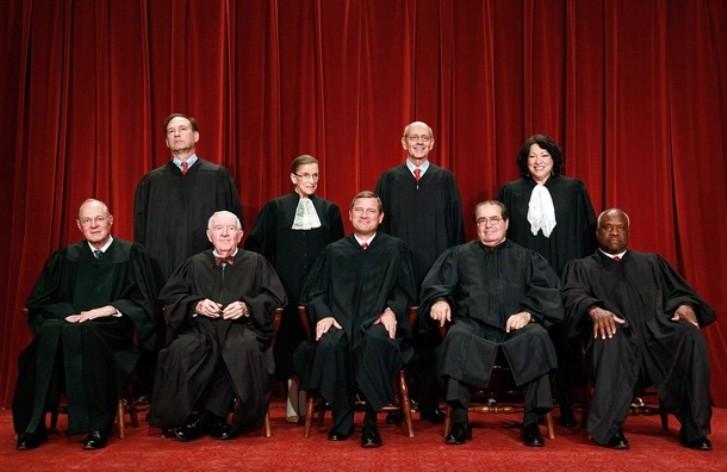
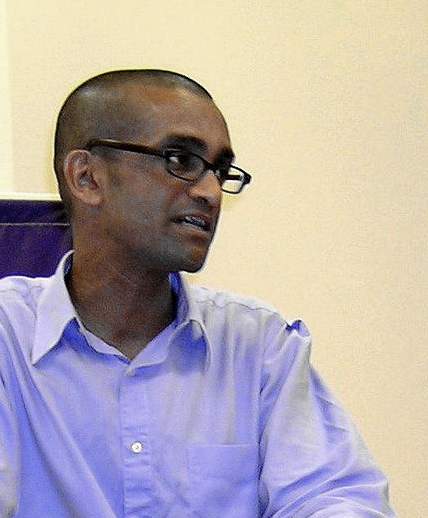
A Dark Day For Human Rights
The Supreme Court’s decision to preserve a vague prohibition on aiding and associating with terrorist groups severely reduced the First Amendment rights of American citizens. The decision could have serious impact on lawyers, journalists and academics who represent or study terrorist groups. The new decision came from a case by the Humanitarian Law Project that challenged the law of prohibiting “material support” to terror groups. The law projected wanted to provide advice to two terrorist groups on how to peacefully resolve their disputes with the United Nations and International Law. The Supreme Court ruled that the peaceful assistance is aiding terrorism.
Shane Kadidal:
- A number of Justices were skeptical about the ways this law may be applied to journalists, to lawyers representing unpopular clients. “Speech discouraging violence can be banned under the First Amendment.”
- Solicitor General Kagan was asked if a lawyer is entitled to represent someone on the FTO list.
- Foreign Terrorist Organization List.
- Kagan says if you have some Constitutional right to be in court then the statutes should be interpreted in a way to allow the lawyer to represent someone in those circumstances.
- If you think about it, it took the Guantanamo lawyers 7 years to establish if there was a Constitutional right to challenge your detention if you’re a non-citizen.
- Kagan is saying that lawyers were taking their chances to represent Guantanamo lawyers in the first place.
- Lynn Cheney’s group : Keep America Safe.
- You couldn’t send books on Federalism to the Tigers of Tamil Eelam who are on the FTO list.
- The law defines material support to be more than tangible things like guns, and money but also things like personal services, expert advice and assistance. Those terms are so broad.
- (Treating a wounded person with your medical skills) Humanitarian aid during crisis at risk.
- That’s one of the fundamental problems with vague statutes. They give too much discretion to law enforcement, if everything is prohibited than law enforcement is going to be selective on who they choose to prosecute. The government likes that. Greenpeace would easily qualify.
- President Clinton was the first to use this law directed at whole nations such as Nazi Germany or Cuba and instead direct them at political organizations.
- The government has used this law 150 times since 9/11. Statute of limitations of 8 years.
Guest – Shane Kadidal senior managing attorney of the Guantánamo Global Justice Initiative at the Center for Constitutional Rights in New York City. He is a graduate of the Yale Law School and a former law clerk to Judge Kermit Lipez of the United States Court of Appeals for the First Circuit.
————————————————————————
Censorship, Civil Liberties, Criminalizing Dissent, Gaza, Guantanamo, Habeas Corpus, Human Rights, Military Tribunal, Prison Industry, Targeting Muslims, Torture, Truth to Power
Podcast: Play in new window | Download
Updates:
—

Historic International Support: Gaza Freedom March Debrief
Hundreds of activists with the Gaza Freedom Marchers have returned from Israel, Palestine and Egypt bringing home incredible stories from the largest international mobilization of people in solidarity. We hear first hand accounts from our own Michael Ratner who with his family were among the 13 hundred solidarity marchers. We are also joined by Felice Gelman who has also returned from the Gaza Freedom March. As many listeners may know, the Egyptian authorities refused to allow the 1,365 participants from 43 countries to enter the Gaza Strip, but later 100 people were let in to Gaza.
Felice Gelman / Michael Ratner:
- It was a remarkable event despite not getting into Gaza. 1400 people from 43 countries, Europe India, Australia, South Africa. Within 3 days the Egyptian government went from we need more info, we’re working with you to . . . you’re not coming.
- We were unable to get a meeting place at any time for any group of people. The Egyptians said that any gathering of more than six people would be illegal. One of the prerequisites in order to get into Gaza is you don’t engage with local opposition in Egypt. In a way it was a perfect demonstration of what the siege in Gaza is all about.
- Egypt is a police state. There are 2 million police for a population of 60 million.
- Egyptian police are very brutal with their people. They’re disappeared, they’re tortured. No room for democracy. No support for a civil society to express itself to protest.
- The thing that was incredible was the number of Egyptians that wanted to join us. There were a couple of instances where people were hurt. The secret police would try to single people out at a demonstration and punch or hit them.
- They would identify women who were Muslims. I don’t know if was that they were Egyptian and they (secret police) thought they could get away with it. They beat up a 12 year old girl and a 75 year old woman, they were not discriminating.
- Egyptians (opposition) joined in with GFM demonstrations in Cairo.
- We had a demonstration at the US Embassy in Cairo, the police surrounded them for five hours before they could get into Embassy. The US Embassy didn’t seem to think that this was bizarre until they were reminded of their legal obligation to help their citizens.
- the US Embassy informed the Egyptian police that they had no objection of us going to Gaza.
- There were some people who went to Al-Arish, and the Egyptian police were onto that. They surrounded a hotel in Al-Arish
- (Michael Ratner) I can’t imagine the logistics and the organizing nightmare it was for you guys
- I can’t think of a time since the Spanish Civil War, that there was a contingent of such size and national breadth that traveled to assist people in their distress from a brutal attack.
- I think this was an incredible demonstration of where the world stands on Gaza.
- My kids 19 and 21, seeing people with the courage to go to these demonstrations from all over the world. Out of that I think there will be a global organizing structure.
- The other thing is the drafting of the Cairo Declaration, drafted by the South African delegation. Calling on the ending of the occupations of Gaza and the West Bank, primarily with global BDS movements. (Palestinian unified call)
- When Gaza was getting attacked, it was the South African trade unionists that refused to load the weapons that were being sent to Israel.
- The potential for labor to move on this is enormous and powerful.
- The Gaza Freedom March website will be handed over to the committee working on the Cairo Declaration.
- New York Report Back – Judson Memorial Church January 21 / 55 Washington Square S.
Guest: Felice Gelman, member of the Wespac Middle East Committee and a member of the Steering Committee that organized The Gaza Freedom March. She has traveled to Gaza twice since the Israeli invasion last year.
—————–

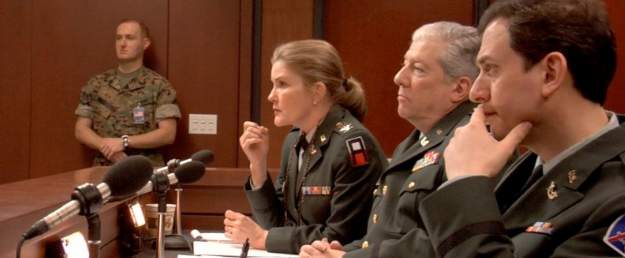
The Response: Sig Libowitz – Combatant Status Review Tribunals
January 11, 2010 marked the 8th anniversary since the Bush administration turned the US Naval Base at Guantanamo Bay, Cuba into a “enemy combatant” detention facility. Essentially re-commissioning the base as a torture chamber and legal black hole, where prisoner suicides are considered acts of war. As we’ve reported on in the last few months, the Obama administration has held on to the power to allow for a preventive detention system that would indefinitely jail terror suspects in the United States without trial. Meanwhile, military tribunals are now mainstream news, the tribunals are called Combatant Status Review Tribunals, where military justices discern who is an enemy combatant. These trials are also the subject of a 30 minute film titled The Response. The film is written and produced by actor Sig Libowitz who is transitioning from being an actor playing an attorney on the TV series Law and Order, to becoming a real lawyer. While in law school, Libowitz was tranfixed by the tribunal process of no jury and no defense lawyer. The film is based on actual court transcripts and is shortlisted for The Academy Award. The Response is screening at Columbia University’s School of Law on January 20th at 6pm.
Sig Libowitz:
- Michael Ratner: First of all there was no real process for people in Guantanamo. Then we won the right to Habeas Corpus, to go into a federal court and challenge their detention. At that point the Bush Administration set up a special process in Guantanamo.
- As we depict in the film, this is a process where the detainees don’t have a lawyer, they are not provided with the evidence that’s against them. The real transcripts told the story of the detainees and the judges in these CSRTs. From that I saw an incredible movie, and incredible opportunity.
- Because, I thought I had an understanding of what Guantanamo was all about, then I read the transcripts (of a CSRT) It gives a human dimension to the detainee and the military judges.
- Screening at Columbia Law School, Wednesday January 20th 6PM All the cast will be there and Shane Kadidal and Matthew Waxman. We’ve screened the movie at the Pentagon.
Guest: Sig Libowitz, an American lawyer, actor, film executive and director. Libowitz is notable for producing, directing and starring in a film, The Response, he wrote after reading some transcripts from Guantanamo captives‘ Combatant Status Review Tribunals. Libowitz is an executive for the acquisitions department of Turner Classic movies. He had a recurring roles in The Sopranos and Law and Order.
——————

Free Fahad Hashmi
Fahad Hashmi a Pakistani born American student, has spent nearly 2 1/2 years in solitary confinement in a Manhattan detention facility. He has been isolated for one of the longest periods in America as a suspect before trial. Hosts reported on this case in March 2008, we spoke with Fahad Hashmi’s father Syed Anwar, and Fahad’s attorney Sean Mayer. Fahad is accused of storing waterproof socks, ponchos and raincoats. The US charges were based on allowing an acquaintance “Janaid Babar” to store this rain gear in the closet of his London flat. Janaid Babar was a paid government cooperator who has been used to testify against Muslims around the world. Nicknamed ‘Supergrass’ by the British media, Babar was used by the UK government to testify against Omar Khyam and several other Muslim men in the so-called Fertilizer Case. Meanwhile Fahad’s trial is expected in January 2010, the prosecution will use Junaid as a main witness. Hashmi has been held under the SAM’s Special Administrative Measures that include a 23 hour a day lockdown, constant video surveillance of his cell and limited visitation.
(Fahad’s Brother)Faisal Hashmi:
- I’m under SAMs as our family is. Our visits with him, we can’t talk about it, but I can say from open court, he looks frail, he looks jittery He’s been in solitary confinement for 2 and half years.
- He’s in the Metropolitan Correctional Center a few blocks from here. Within his own cell, he’s videotaped at all times. He’s not allowed to talk out loud. He has a microphone in his cell.
- This is about deconstructing a human being, depriving him of his humanity. He’s 29 years old.
- Charged with four counts of material support for terrorism. He stored ponchos and rain gear.
- In 2004, this acquaintance while working on his Master’s degree stayed with Fahad.
- This was January 2004, he went to the US in April 2004, was arrested, and became a cooperating witness for the US government. At this time about 8 people got arrested, some in Pakistan, London and Canada, all on Junaid Barbar’s witness cooperation.
- In June 2006, my brother gets arrested. They tell Fahad, that Junaid gave the ponchos and gloves to Al-Qaeda and you gave material support to terrorists. You let Junaid use your cell phone, and Juanaid borrowed 300.00 from Fahad, saying that his ailing daughter needed the money. Fahad’s trial starts January 6, 2010
- FreeFahad.com This case has nothing to do with ponchos and socks.
Jeanne Theoharis:
- This is a case we need to be concerned about for those who value the first amendment. I had Fahad as a student in Brooklyn College in 2002
- There’s no way to understand this case without understanding the way Fahad was being watched many years ago even as a college student. We’ve sent a letter to the attorney general addressing 3 main issues, the conditions of his confinement, the way his due process is being violated and then first amendment issues.
- The letter was signed by more than 550 scholars and writers. Organizing among the Muslim student community.
- Theaters Against War calling attention to Fahad’s case.
- Free Fahad Vigil January 18, 2010
Guests: Fahad’s brother Faisal Hashmi and Jeanne Theoharis, an associate professor of political science at Brooklyn College, City University of New York. She was one of Fahad’s professors and she has been following this case.
———————————————————————
Censorship, Civil Liberties, Guantanamo, Habeas Corpus, Human Rights, Military Tribunal, Targeting Muslims, Torture, Truth to Power
Podcast: Play in new window | Download
Host Updates:
Segments This Week:
———-
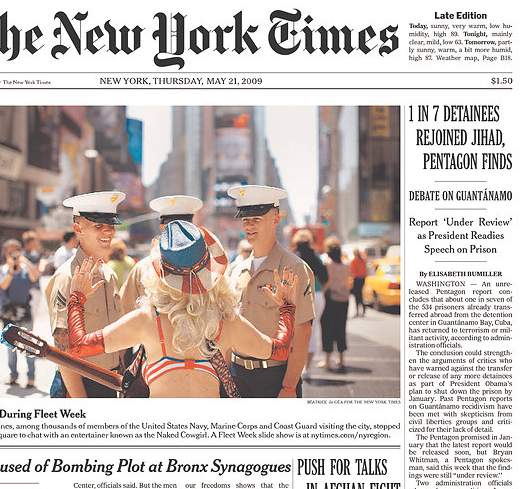
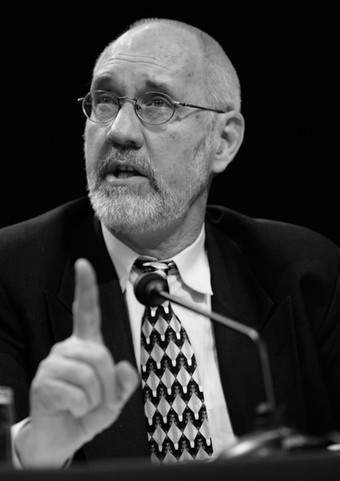
Disgraceful Coverage: New York Times Article Riddled With Inaccuracy
On May 21, the New York Times newspaper published a front page story, titled 1 in 7 Detainees Rejoined Jihad, Pentagon Finds. Journalist, Elisabeth Bumiller stated from the Pentagon report that 74 prisoners released from Guantanamo had “returned to terrorism.” Many have criticized Bumiller for parroting the Pentagon without investigation or at least being aware of the Seton Hall Law School’s work in challenging the Pentagon’s many recidivism reports. Using the phrase “rejoining jihad” assumes guilt to all former Guantanamo prisoners. The DOD counted Uighers and the Tipton 3, to have returned to the battlefields. The Myth of Return To The Battlefield from Guantanamo
Mark Denbeaux:
- Pentagon playing with numbers, first they said people (in Guantanamo) returned to the fight who were never in the fight, and then they said they returned to the fight from Guantanamo who were never in Guantanamo and never in the fight.
- None of the people that the DOD has listed in its 45 times has ever attacked American troops or its American interests or Americans anywhere in the world. With one exception, none of them have left their home country to whom they’ve returned.
- I was quoted in that article, the reporter called me for 2 days in a row, saying she’s under enormous pressure from her NYTimes editors.
- Talking with the Public Editor we both agreed comparing Elisabeth Bumiller with Judith Miller wasn’t fair but he said it was reminiscent of the lead up to the Iraq War
- A disgrace in the coverage of Guantanamo, a grotesque statement that was wrong with huge political consequences and they (NY Times) couldn’t un-ring that bell.
- There are NY Times reporters immersed in Guantanamo and National Security issues, why did they drop this in the lap of Elisabeth Bumiller? She said (Elisabeth Bumiller) that the Pentagon can’t release information because of politics. I said at least say that politics are involved. She said, I can’t say that.
- Add to that, that the editors were pushing her to get this story out. (Memorial Day Weekend)
- I think everyone agrees that the headline was grotesque and everyone noted the story came out on the morning of Cheney’s speech, and he had it at the ready in his speech.
- I was able with a group of Seton Hall Law students to go through the data the AP produced from a FOIA application.
- My students discovered that only 4 percent of those in Guantanamo were picked up by US forces, 86 percent were bounties in Pakistan and Afghanistan.
- It turned out that if you had 4 or 5 Arabs in a truck that was 20 or 25 thousand US dollars. But for one bounty, it 5 thousand dollars.
- For that 5 thousand dollar bounty you could feed your village as it said in the (CIA brochure) for a year. . .etc
- 55 percent of those in Guantanamo were not accused of commiting a hostile act.
- One of my conservative students asked, Where’s Mr. Big? We’re reading through the lists, he says what about this guy? He turns out to be under US allegation conscripted by the Taliban to be an assistant cook.
- This person surrendered but considered to be among the 45 percent of GTMO prisoners accused of hostile acts. His hostile act was surrendering to the Northern Alliance.
Guest – Seton Hall Law School Professor Mark Denbeaux gives an accurate reading on the Guantanamo prisoner recidivism rates. Professor Mark Denbeaux, one of Seton Hall’s most senior faculty members, is also the Director of the Seton Hall Law School Center for Policy and Research, which is best known for its dissemination of the internationally recognized series of reports on the Guantánamo Bay Detention Camp.
—-
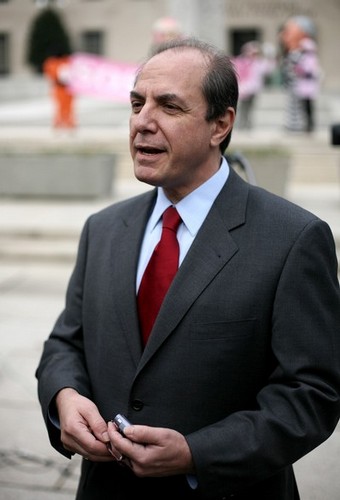
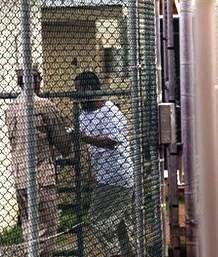
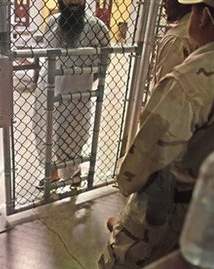
US “Preventive Detention” System In Place
President Obama has held on to the power to allow for a “preventive detention” system that would indefinitely jail terror suspects in the United States without a trial. In a number of Guantanamo habeas corpus cases, the US government’s arguments set up a framework to give the president power to hold terror suspects indefinitely without charge or trial. This is the same broad executive power wielded by the Bush Administration that essentially defines a police state. It would be a total disaster if Congress were to pass a preventive detention regime into law say concerned civil rights lawyers.
David Remes:
- One of my colleagues called CCR and asked how can we help, and CCR doled out 13 Yemenis to represent at Guantanamo.
- We represented them since July 2004, along the way we’ve picked Albanians, more Yemenis and a Pakistani.
- I have my own non-profit human rights litigation firm called Appeal For Justice. I’ve had this up and running since it became clear I could no longer continue at a corporate law firm.
- I really lost interest in the corporate work that I was doing. I would come back from Guantanamo thinking on the way back, nothing else matters.
- I am right now at the secure facility at Arlington Virginia. This is a facility that the government set up to hold our interview notes and exhibits that are deemed to be classified information. It’s not a very pleasant place to work.
- So here are now in June, a year after the Supreme Court said that the men could bring Habeas cases, and they’re still here, five months after the Obama Administration said they would determine case by case who could be released.
- President Obama has released two men.
- My client Adnan Latif with severe psychological issues and a variety of neglected medical conditions. He’s tried to commit suicide a number of times that we know about.
- He’s a very intelligent young man, he writes beautiful poetry. In the last meeting I had with him, but under the table he had chipped off a piece of the formica and started sawing into the vein in his wrist.
- Then at a certain point he said I have a gift for you. I want something for you to remember me by, and he threw a small cup of his blood at me.
- Guantanamo prisoner suicides are considered acts of war against the US.
- I think the idea of preventive detention is an idea that goes too far analytically, because if you can preventively detain people why try them at all.
- I’m afraid that the Obama Administration may pursue legislation, that would strip jurisdiction and deny the right of Habeas.
- Forty percent of Guantanamo prisoners are Yemenis. This is diplomatic problem, not a case by case review.
Guest – Attorney David Remes , who represents 16 Guantanamo detainees from Yemen. Remes played a role in a challenge focused around the captives’ detention based on an avenue of appeal that the Detainee Treatment Act of 2005 (DTA) opened. The DTA closed the opportunity for captives who had not yet had writs of habeas corpus filed on their behalf. But the DTA allowed captives to challenge the determinations of their Combatant Status Review Tribunals, that they were properly classified as “enemy combatants”.
_______________________________________________________________
Civil Liberties, Criminalizing Dissent, Extraordinary Rendition, Guantanamo, Habeas Corpus, Human Rights, Supreme Court, Surveillance, Targeting Muslims, Torture, Truth to Power
Podcast: Play in new window | Download


The First 100 Days: Dismantling the Police State in a New Presidency – Part 2
This is the second of a three part special. Law and Disorder hosts bring a series of interviews with key attorneys, authors and activists from the front lines such as the Center For Constitutional Rights, Universities of Law and the National Lawyers Guild. Some of the police state policies are beginning to be reversed such as closing down secret CIA sites, a timeline to shut down Guantanamo, and mandating everyone CIA included follow US Army Field Manual Interrogation tactics.
Recently the Obama Administration defended the telecom wiretapping legislation. Attorney General Eric Holder told Senator Orin Hatch – “The duty of the Justice Department is to defend statutes that have been passed by Congress.”
CCR staff attorney Shane Kadidal explains in detail the 3 main groups of Guantanamo detainees, the laws that allow for secret sites, FISA wiretapping, National Security letters, data mining and the Patriot Act.
Shane Kadidal:
- The Three Groups in Guantanamo: First Group – Two dozen genuinely involved with “Al Qaeda” – planning terrorist activities – the people who would be tried in federal courts if GTMO never existed.
- Second Group – Shouldn’t have been there in the first place. The US says they may charge as many as 80 people, there are 255 people left, that means there are close to 200 people that the US gov’t will send home. Like the 500 people who have already been sent home from GTMO.
- Subgroups – there are about 110 Yemenis waiting to return back to Yemen
- Third group: Guantanamos refugees who come to GTMO from places with horrible human rights records, Syria, Uzbekistan, Tunisia, about 13 countries where we ordinarily give them asylum. We can’t return them in good faith back to the countries they are citizens of. Find traditional asylum accepting countries to send them to largely in Europe.
- Secret Sites: The next president could decide to end the secret sites – Who is accountable for sending people to black sites to be tortured? – Military Commissions Act gives those involved immunity from actions that would have been violations of the War Crimes Act or Anti Torture Act
- Repeal MCA – Once you do that, then any officials participating in the black sites have to worry the rest of their lives of being criminally prosecuted for what they did.
- Repealing the MCA would restore Habeas Corpus to full flower that Supreme Court did in the case of Razul and proper judicial oversight regarding detentions.
- Repudiate the whole practice of using black sites and rendition
- Torture: There is one measure out there to propose that the military revert to the model of the Army Field Manual, that actually has acceptable interrogation tactics. – Done
- The Army Field Manual was designed by Interrogation experts with long history of experience and know from practical experience that torture doesn’t work in producing reliable information.
- All of this can be done by executive order, a stroke of the pen as Clinton used to say.
- FISA – wiretapping – the secret court that approves wiretaps – The historic model was that law enforcement would have to present a little bit of evidence of suspicion and that the court would authorize the person to be wiretapped. You go to the judge you get the order directed to one person.
- Right now, it’s broader, instead of going to a judge with specific evidence and getting specific authority for a very limited wiretap. Now based on the FISA Amendments Act passed this summer of June 2008, – they seem to want to get authority to do a wholesale authority on wiretapping and they’ll give the judge criteria in very rough terms. The discretion of law enforcement no longer limited.
- The colonists wrote the fourth amendment with the warrant requirement in it because they were concerned the king had issued these general warrants to allow his agents to run around where there might be violations of the stamp tax act.
- The Supreme Court may argue that the fourth amendment is outdated and allow the broader wiretap powers.
- Also, a new president coming in may decide not to use this power, but there is going to be a great deal of inertia from the intelligence agencies who had five or six years of this power under the NSA
- Its hard to get rid of this entrenched thing, they’ll come to the president with all sorts of arguments.
- This is an area where Congress would have to step in to restore post Watergate era restrictions that were put in place in the FISA act in 1978
- Patriot Act – A lot of it hasn’t been used as predicted.
- Preventive detention – they can hold citizens for 7 days without charge/ but the president asserted executive power to hold citizens and non-citizens without charges for years.
- Now the Patriot Act looks like a model of checks and balances.
- National Security letters and Data Mining – The government pulls in huge amounts of data both from private sources and things that can accumulate. We know that they were seeking calling records, the story broke in the middle of 2006 from nearly all the phone companies and they complied.
- We know they’ve been seeking search terms in various contexts from internet providers, we know they have worked with Swift which processes interbank tranactions to get huge amount of financial transfer data, financial transactions that happen anywhere in the world.
- They’re putting this into a database to see if they can catch terrorists by applying pattern analysis. The first problem with that is that we don’t know if it works, its likely to have a very false positive rate.
- Very close to profiling and pull in people who should not be made the targets of suspicion.
- There is so little human intelligence on the ground, and its tempting for intelligence agencies to look to for technological panacea.
Guest – Shayana Kadidal has been at the Center for Constitutional Rights (CCR) since 2001. Shane is senior managing attorney of the Guantánamo Global Justice Initiative at CCR. In addition to supervising the Guantánamo litigation, he also works on the Center’s case against the NSA’s warrantless surveillance program, CCR v. Bush, and its challenge to the “material support” statute, HLP v. Gonzales. Shane has testified before Congress on the material witness statute and is a contributor to the Center’s book Articles of Impeachment Against George W. Bush, 2006. He graduated from Yale Law School and clerked for a judge of the U.S. Court of Appeals for the First Circuit.
——————————————————
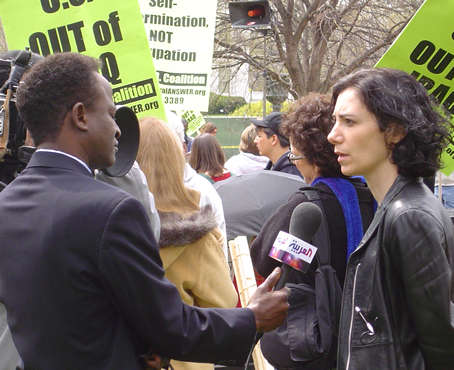
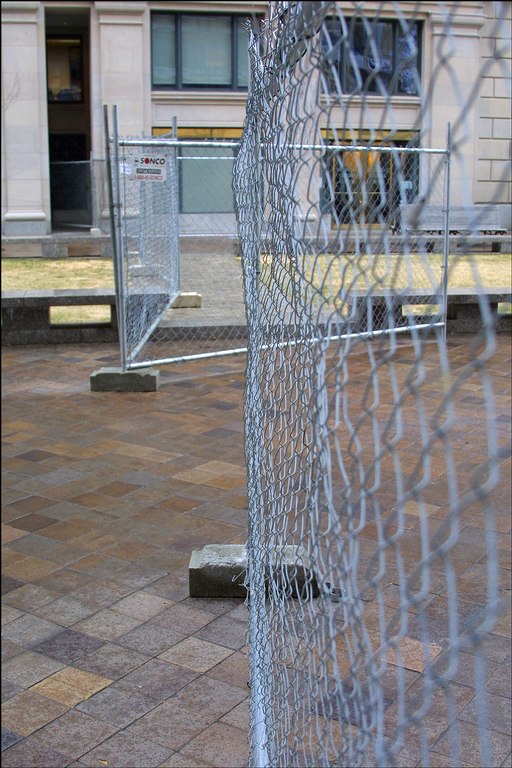
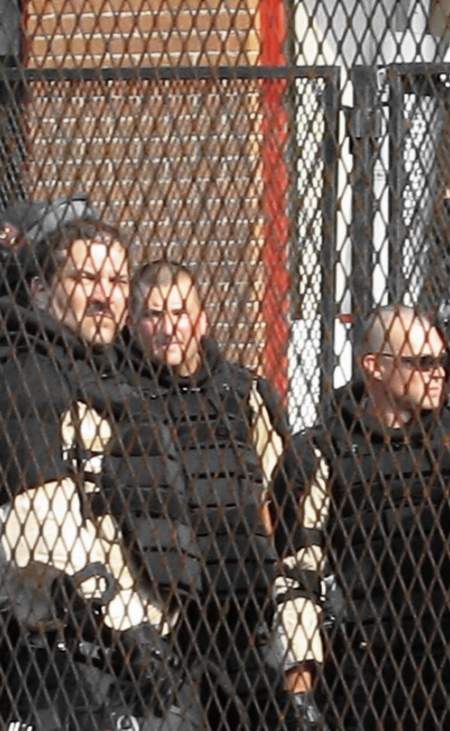
Mara Verheyden-Hilliard: Criminalizing Dissent
Criminalizing Dissent has chilled most free speech movement in the United States, especially when demonstrators take to the streets. We talk with attorney Mara Verheyden Hilliard co_founder of The Partnership for Civil Justice Legal Defense & Education Fund about criminalizing dissent, surveillance, data mining, fusion centers and the ability to exercise first amendment rights. A recent example were the violations of free speech during the mass arrests of protesters at the 2008 Republican National Convention. The demonizing of protesters and their message in the media will usually allow for the use of military force by police. That combined with intelligence gathering and targeting of lead organizers squelched the voice of dissent in all age groups.
Mara Verheyden Hilliard:
- A lot of our work is at the intersection of first and fourth amendment rights.
- PCJ has a class action suit pending from the world bank IMF protest – 8 year drag out tactic.
- “What they want to do is stage-manage democracy.”
- Victory: After years of litigation the government has to lift regulations on number of people at the Great Lawn
- Is it important to say that we don’t want to go back to Jan 19, 2001 just the day before Bush took office- or is there more that we have to do?
- We think there has to be an audit of every agency’s databases to determine exactly what the databases are.
- Identify what has been collected, where it has been put, who has access to that information,
- Then to tell people in the United States individually, what has been collected on them and then to expunge it.
- For people in their United States, their government collecting information, maintaining information, in these massive database files, that can be used by law enforcement, pulled up in a moment’s notice is really a very dangerous practice.
- What they’ve done is misuse existing databases and data tools.
Guest – Attorney Mara Verheyden Hilliard co-founder of The Partnership for Civil Justice Legal Defense & Education Fund.
————————————————-











